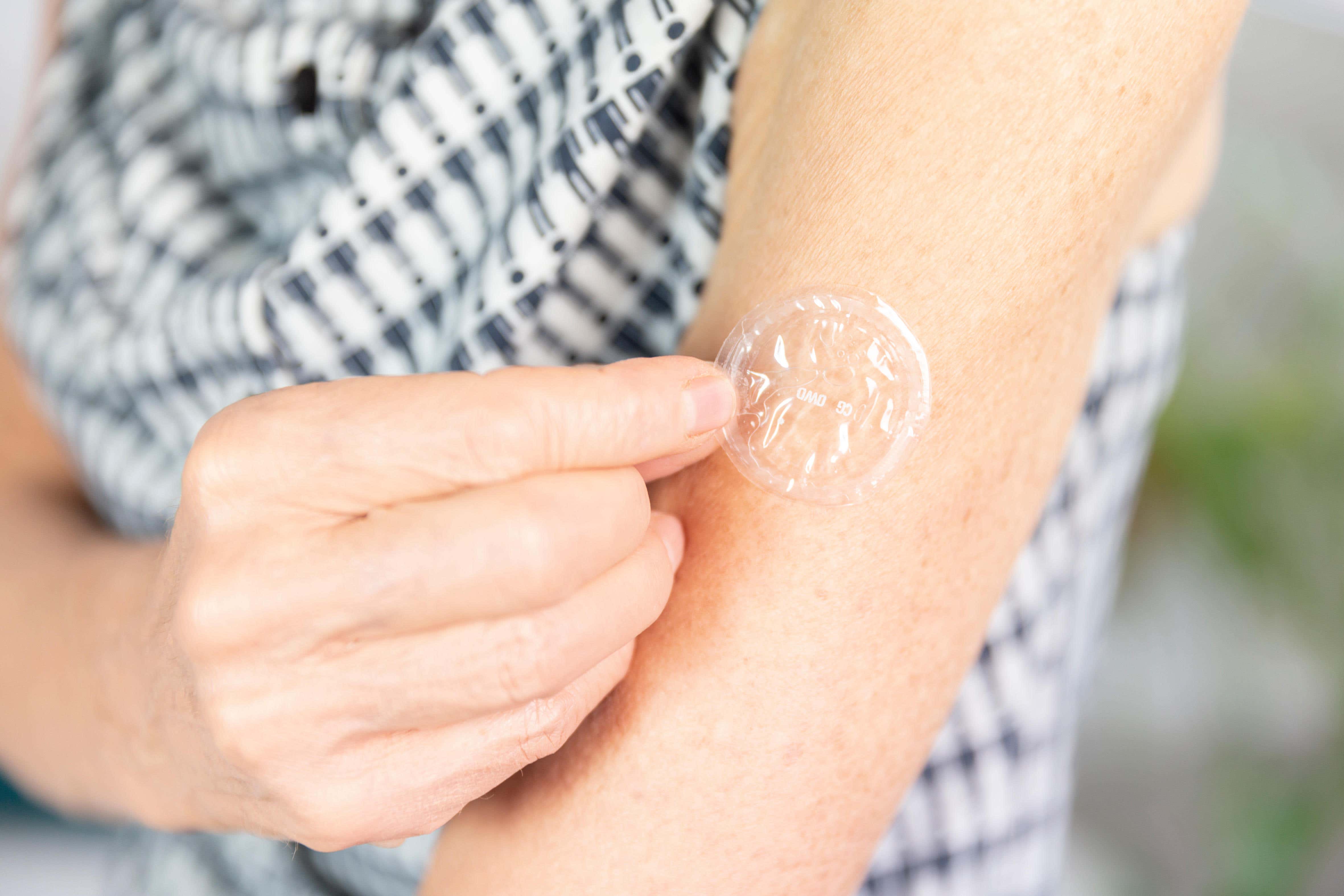Watchdog calls for review of menopause link to poor mental health after woman’s suicide
Frances Wellburn, 56, took her own life in 2020 after being incorrectly assessed as ‘medium risk’ of suicide by Tees, Esk and Wear NHS Trust

Your support helps us to tell the story
From reproductive rights to climate change to Big Tech, The Independent is on the ground when the story is developing. Whether it's investigating the financials of Elon Musk's pro-Trump PAC or producing our latest documentary, 'The A Word', which shines a light on the American women fighting for reproductive rights, we know how important it is to parse out the facts from the messaging.
At such a critical moment in US history, we need reporters on the ground. Your donation allows us to keep sending journalists to speak to both sides of the story.
The Independent is trusted by Americans across the entire political spectrum. And unlike many other quality news outlets, we choose not to lock Americans out of our reporting and analysis with paywalls. We believe quality journalism should be available to everyone, paid for by those who can afford it.
Your support makes all the difference.The link between menopause and poor mental health should be reviewed, the health watchdog has said, after an inquiry into a woman’s suicide found staff lack training to spot the risks.
Frances Wellburn, 56, took her own life in 2020 after she was incorrectly assessed as being a “medium risk” of suicide by Tees, Esk and Wear NHS Trust (TEWV).
A national study by the Health and Safety Investigation Branch (HSIB), prompted by her death, warned that this was a national problem, with funding and capacity problems driving staff to use ineffective “checklist” tools when assessing suicidal patients.
The HSIB also found staff were not trained to spot mental health risks associated with menopause, and menopause is not routinely considered a contributing factor among women with low mood who need help.
It said that women are often prescribed antidepressants when hormone replacement therapy (HRT) would be more appropriate.
Are you affected by this story? Email rebecca.thomas@independent.co.uk
In Ms Wellburn’s case, HSIB found TEWV staff had failed to take into account that she was going through menopause when they assessed her as being at medium risk of self-harm. This went against national guidance, which states scales should not be used to predict future suicide or self-harm.
The trust has previously been criticised in independent inquiries for systemic failings which led to the deaths of three young women in inpatient units.
The report warned that NHS hospitals are not adequately managing suicidal patients, with many assessed as “low” or “moderate” risk going on to take their own lives.
The watchdog said hospitals commonly used such “checklists” to assess patients’ suicide risk, with clinicians warning that categorising patients as low risk was often used as a justification not to provide care. NHS England told HSIB it had since written to all hospitals reminding them not to use this scale.
The report also raised concerns that patients were being wrongly refused early intervention psychosis care based on their age – despite guidance in 2016 ruling this should not be a factor.
According to an internal serious incident report by TEWV in 2020, trust staff held a “false view that due to Frances’ age (>35) and diagnosis of ‘depression with psychotic features’ that she would not be considered for assessment by the EIP service”.
Early intervention in psychosis services are community-based services aimed at people who are experiencing psychosis for the first time. These services were initially aimed at people aged 14 to 35 however the guidance changed in 2016 to remove the age limit. According to HSIB’s report, staff claimed she was not referred to EIP services because they thought community services would be more appropriate.
The HSIB investigation found some trusts are still prioritising young patients for early intervention in psychosis services due to problems related to funding, capacity, and “misconceptions” over whether an older person can be experiencing a first episode of psychosis later in life.

According to the latest NHS data, just 44 per cent of EIP services in England are meeting the highest level of National Institute for Health and Care Excellence (NICE) guidance, against a target of at least 70 per cent.
Experts quoted in the report said it would be beneficial to have women-specific healthcare services and mental health treatments designed to account for age and sex.
In a statement reacting to the report, MsWellburns’ sister said: “In the last 10 months of my sister’s life she was thrown into unknown territory as she experienced a first episode of psychosis. She became convinced that people close to her were trying to harm her and she lost all trust in everything that had previously given her life meaning. This frightening world became her reality, and she lost the ability to see what was happening to her as an illness she could recover from.”
“Our family have shared information about my sister’s experience in the hope that others like her can be better supported to stay safe and recover.”
If you have been impacted by this piece you can contact Samaritans on 116123 or visit https://www.samaritans.org/how-we-can-help/contact-samaritan/
An NHS England spokesperson: “There is clear evidence that risk assessment tools are not an effective basis on which to predict future suicidal behaviour or incidents of self-harm and should not be used to decide who should be offered treatment.
“We are asking all services to review the use of risk assessment tools and scales and to develop more personalised approaches to safety planning, with tailored assessment and management of an individual’s needs, risks and contexts.”
The CQC said it welcomed HSIB’s recommendations on improving its inspections of community mental health care.
A spokesperson for TEWV: “We fully support the findings and recommendations in the HSIB report into care delivery within community mental health teams. We will keep working closely with our partners in the wider health and social care system to make sure improvements are made.”
In response to the recommendations NICE said: “‘NICE welcomes the Healthcare Safety Investigation Branch’s independent report into ‘Care delivery within community mental health teams’...We are reviewing the report’s recommendations in detail to determine if any updates to our existing menopause guidance are required. In the wider context of women’s health, we have recently contributed to the DHSC Women’s Strategy.”




Join our commenting forum
Join thought-provoking conversations, follow other Independent readers and see their replies
Comments